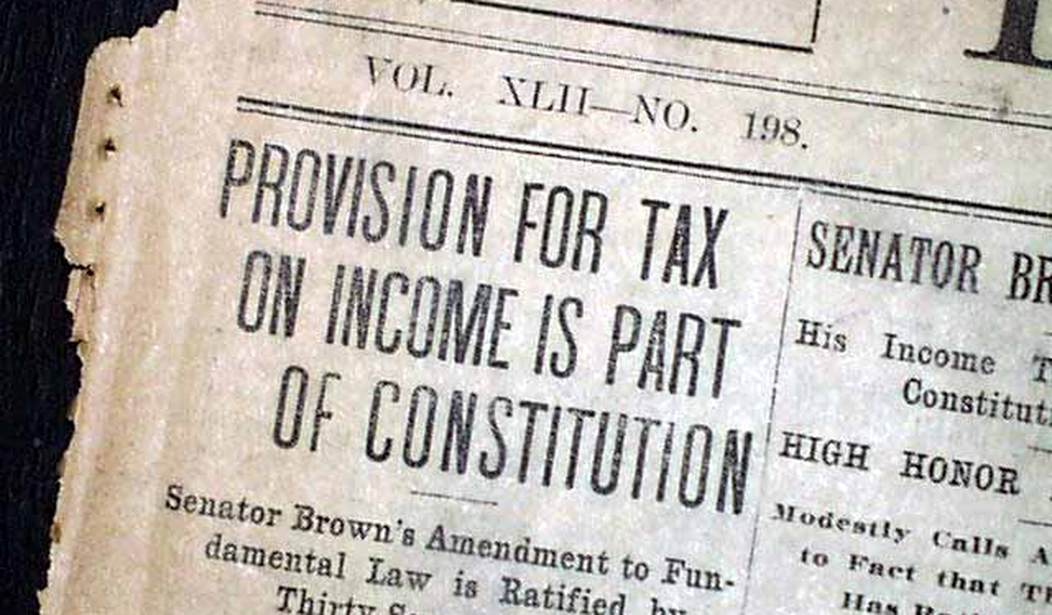Our 227-year experiment in self-government appears to be winding down. It may simply be too good a proposition to be true. It appears to be the case that eventually the people tire of vigilance and decide to trade freedom for the illusion of security.
The French political writer Frédéric Bastiat famously observed, as long ago as 1848, that the beginning of the end comes when the people figure out that they can vote themselves largesse from the treasury. That has happened.
It is often asserted that both parties use the federal budget as a means of buying votes. The observation is true enough, but the transaction can only take place when there are votes for sale. When citizens of the republic engage in serial petition of the government for “free stuff” and play “beggar thy neighbor” with their fellow citizens without consideration of the consequences for the society as a whole, then the society as a whole collapses.
But what must be understood is that welfare payments and entitlement programs are not the only sort of redistributive transfer payments which are problematical.
Donald Trump is the avatar of crony capitalism. He touts himself as a brilliant businessman, but that isn’t quite true. What is true is that he has been brilliant at enriching himself at other people’s expense. He has done this, by his own admission, by buying and selling politicians to get his way, by trying to abuse the law to get his way (eminent domain), and through serial bankruptcies in which his businesses fold, employees lose their jobs, and investors lose their money, but somehow he comes out whole. Not to speak of outright fraud (Trump University). His decision to launch Trump Mortgage 18 months before the collapse of the property market in 2008 demonstrates that he doesn’t even understand the world of property investment in which he claims to be an expert.
For every one of his business failures, he gives one of two excuses:
- I wasn’t really in charge of managing that operation; if I had been it would have been a success.
- I simply lent my name to the enterprise for branding purposes.
This offers us a window into how he would run his administration. None of his grandiose schemes would ever work out, but none of the failures would be his fault. There would be no accountability but plenty of vindictive government vengeance wrought upon anyone who attempted to assign responsibility to him. This is not how our political system was intended to work, nor is “Trumponomics” indicative of a genuine market economy, in which transactions freely negotiated between suppliers of goods and services and those who need such goods and services take place.
But Trump is merely a symptom of a very serious condition.
No less an authority than Dwight David Eisenhower warned us against it, a warning which has never been properly understood, internalized, or applied. That was his famous warning against the military-industrial complex.
The military-industrial complex is nothing other than a metaphor for all of the ways in which the coercive power has come to be used, by both parties, in the name of the collective good, to oppress the citizenry in the form of this corrupt bargain in which votes are bought with everybody else’s money. It was never meant to be this way, and it originally wasn’t. The events of the last hundred years have caused the country to saddle itself, out of the best motives, with a permanent bureaucratic structure arrayed to a vast array of “private” enterprises which would not exist, or would be much smaller, were their principal, and often only, customer not the government.
The problem actually first surfaced very early in the history of the republic. The occasion was the War of 1812, in many ways an adjunct conflict to what may be considered the first “world war”: the struggle against Napoleon and the pernicious ideals of the French Revolution. It was the crying manpower need of the British Royal Navy in that protracted conflict — which led to the British boarding American merchant vessels and impressing American sailors into naval service on the grounds that anyone born an English subject would always be one — that precipitated the war. However, most of the major actions of the war took place along the frontier between the U.S. and Canada.
The bombardment of Fort McHenry just outside Baltimore preparatory to the landing of British troops and the burning of Washington, D.C. — which inspired Francis Scott Key to compose what has become our national anthem — also resulted from the same set of facts. The United States had no navy to speak of, and also did not have the financial resources to raise one.
Ground forces during the conflict were largely supplied by state militias, with the result being that the quality of the troops was uneven and command was often divided. The troops had a dismaying tendency to engage in plunder, because the federal government generally lacked funds to pay them and equip them. In the end the U.S. survived and negotiated a generous ending to the war. This was largely because the Congress of Vienna ending the Napoleonic era was taking place at the same time, and the Royal Navy, a terrible strain on Britain’s exchequer, was being rapidly downsized. It was not our country’s finest hour.
As any number of scholars have noted, the purpose of the U.S. Constitution is to create a small, limited, and relatively weak federal government with regard to the states. It has been a recurring theme for recent Republican candidates to insist that they wish to return to some simpler day when that was true. In order to ensure that it would be true, the Founding Fathers greatly restricted the fundraising capabilities of the federal government essentially to excise taxes, customs duties, and fees for services. They then promptly fell afoul of their own system when they encountered their first serious international crisis.
The American Civil War of 1861-65, apart from the appalling carnage and property damage it caused, generated another such financial crisis, one which Lincoln tried to meet by passing an income tax. This was a temporary tax which explicitly contained a sunset clause ending it in 1866, but Congress’ taste had been whetted.
They sought to re-impose income taxes in 1872 and again in 1894, until the Supreme Court stepped in and declared such a tax unconstitutional in 1895.
And so it remained until the first Progressive Democrat, Woodrow Wilson, was elected president in 1912. That led to passage of the Sixteenth Amendment in 1913, which made an income tax constitutional. That provided the funding mechanism for the massive expansions of government occasioned by the world wars, the New Deal in between, the Cold War, and all the subsequent entitlement programs over the last century.
To show how far we’ve gone, it is noteworthy that in 1887, after a drought had ruined crops in several Texas counties, Congress appropriated $10,000 to purchase seed grain for farmers there (a formidable sum in those days). President Cleveland vetoed the expenditure.
In his veto message, he espoused the theory of limited government:
I can find no warrant for such an appropriation in the Constitution, and I do not believe that the power and duty of the general government ought to be extended to the relief of individual suffering which is in no manner properly related to the public service or benefit. A prevalent tendency to disregard the limited mission of this power and duty should, I think, be steadfastly resisted, to the end that the lesson should be constantly enforced that, though the people support the government, the government should not support the people.
The friendliness and charity of our countrymen can always be relied upon to relieve their fellow-citizens in misfortune. This has been repeatedly and quite lately demonstrated. Federal aid in such cases encourages the expectation of paternal care on the part of the government and weakens the sturdiness of our national character, while it prevents the indulgence among our people of that kindly sentiment and conduct which strengthens the bonds of a common brotherhood.
And Cleveland was a Democrat!
The issue of what constitutes legitimate public interest and legitimate federal expenditure needs to be addressed, and it is not a mere matter of political philosophy or ideology. All of the present Republican candidates propose massive increases in military spending, necessary to reverse the serious decline in force strength and capabilities which have occurred under the present administration, especially if the U.S. is going to “carpet bomb” ISIS (as Senator Cruz is wont to say), or otherwise restore the previous level of American involvement in the world, which they all advocate.
In a recent Trifecta, Scott Ott suggests that the solution to the “macroproblems” of the age necessitates attention to the “microdecisions” we all make as individuals. He is right; it is up to us to stop demanding that the government do everything in order that it can concentrate on those core functions — such as national defense — which the Constitution and common sense mandates.
Yes, that includes whatever your favorite government program is.









Join the conversation as a VIP Member